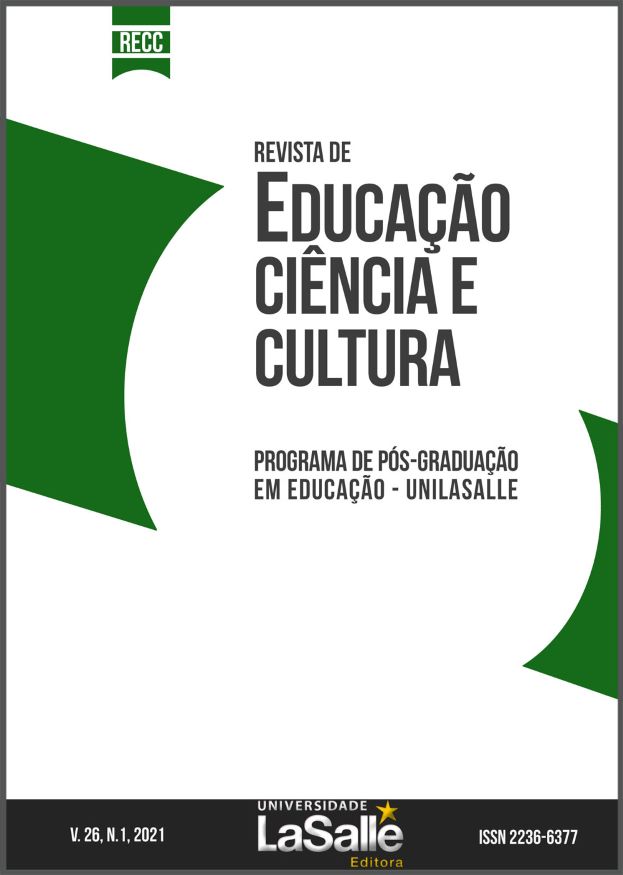Saberes da tradição Amazônicos sobre plantas e ervas nas aulas de ciências nos anos iniciais
DOI:
https://doi.org/10.18316/recc.v26i1.7554Palabras clave:
Ensino de Ciências nos Anos Iniciais, Prática Docente, Escola Ribeirinha, Plantas e Ervas, Saberes da Tradição.Resumen
A prática docente assume papel fundamental em qualquer nível e modalidade de ensino e deve espelhar o contexto sociocultural vivido pelos estudantes, sobretudo em escolas ribeirinhas, nas quais o universo é plural e as ações docentes devem funcionar como uma forma de mediação da cultura e, consequentemente, da identidade do povo campesino, pois não há como pensarmos em uma educação relevante sem considerarmos os elementos culturais nos quais estudantes e professores estão imersos (FARIAS; MENDES, 2014). Desse modo, objetivamos descrever, de maneira reflexiva, o desenvolvimento da prática docente plantas e ervas durante as aulas de Ciências de uma professora ribeirinha em Ponta de Pedras, Ilha de Marajó, Amazônia paraense. Os procedimentos metodológicos centraram-se na entrevista compreensiva (KAUFMANN, 2013), em observações em sala de aula durante nove meses (VIANNA, 2003), e na análise textual discursiva (MORAES; GALIAZZI, 2007). Concluímos que o trabalho docente direcionado às escolas ribeirinhas permite uma análise mais abrangente do contexto escolar, pois as práticas docentes transcendem o espaço físico ao acolher os saberes socioculturais ribeirinhos. Assim, a prática plantas e ervas permitiu compreender o significado que a professora atribui à sua cultura e como acolhe os saberes da tradição em suas aulas, de modo a fortalecer a identidade dos estudantes ribeirinhos, o que permite reafirmar os princípios éticos da educação em prol de uma sociedade múltipla e diversa.
Descargas
Publicado
Número
Sección
Licencia
Autores que submetem seus manuscritos para serem publicados nesta revista concordam com os seguintes termos:
Autores mantém os direitos autorais e concedem à revista o direito de primeira publicação, com o trabalho simultaneamente licenciado sob a Licença Creative Commons Attribution que permite o compartilhamento do trabalho com reconhecimento da autoria e publicação inicial nesta revista.
- Em virtude dos artigos aparecerem nesta revista de acesso público, os artigos são de uso gratuito, com atribuições próprias, em aplicações educacionais e não-comerciais.
O Periódico Revista de Educação, Ciência e Cultura em http://www.revistas.unilasalle.edu.br/index.php/Educacao foi licenciada com uma Licença Creative Commons - Atribuição - Uso Não Comercial 3.0 Não Adaptada.


